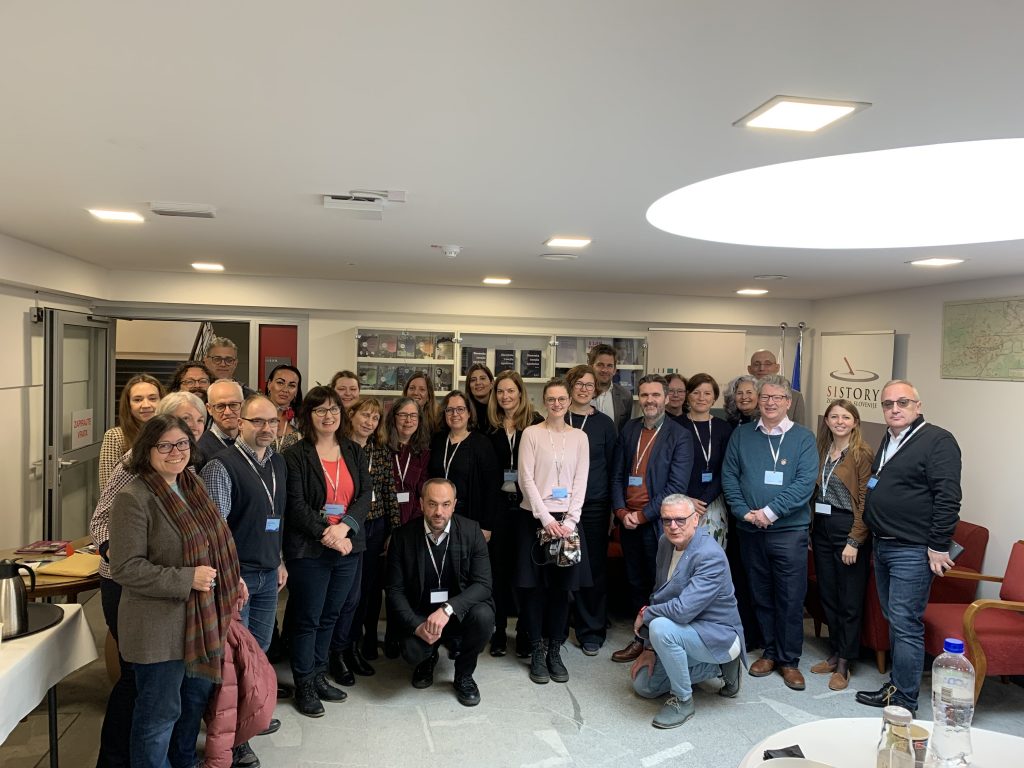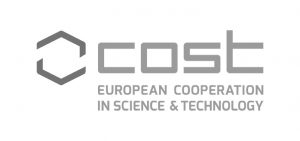
New Project: EuroHealthHist

National, International and Transnational Histories of Healthcare, 1850-2000 (EuroHealthHist)
Barry Doyle, CHSTM’s new Professor of Health History, has been awarded a COST Action grant for a project entitled National, International and Transnational Histories of Healthcare, 1850-2000 (EuroHealthHist). The four-year project aims to address the ongoing diversity of themes, approaches, methods and even sources utilised by historians working in different parts of Europe who study the history of healthcare. This reflects embedded research cultures and networks shaped by long term approaches to the history of medicine, including:
- the role of medic-historians,
- the influence of the social sciences,
- the prominence of social and cultural history,
- national and local politics.
EuroHealthHist will address this challenge through intellectual and physical scientific exchange around four research themes – Healthcare Provision, Healthcare Providers, Patients, and Finance – that will feed into a range of capacity building objectives. Thematic working groups will integrate and finesse diverse methods and approaches and extend knowledge and understanding of experience and sources currently in use across Europe.
Through training events, skills exchange and publications the project will create critical mass in the history of European healthcare, providing support and an academic environment for scholars at all stages of their career. We aim to:
- temper the dominance of Anglophone publication and presentation opportunities;
- create core groups across the continent to exchange ideas and produce collective outputs;
- enhance opportunities for research students and early career researchers to experience diverse academic cultures and approaches; and
- institute collegiate mentoring structures that will reduce hierarchies dominated by seniority and promote fair and equal opportunities irrespective of race, gender, age or class.
The core methodological approach we will use will be comparative history.
To achieve our aims we will engage scholars from across Europe and beyond via two broad methods:
Research Coordination
- Facilitate the production of a broad and deep comparative health history utilising evidence and stories from all parts of Europe in the modern period to enrich understanding of the development of health services and systems.
- Build teams with cognate interests to increase knowledge, understanding and capacity and develop themes that are currently under-researched in parts of the network.
- Extend the scale and scope of healthcare research through collaborative working across nations, career stages and research themes.
- Integrate research students, especially those in small cohorts, to enhance skills and methods and to encourage Universities to take on students in health history who could benefit through their membership of the network.
- Explore ways to overcome language barriers at the collaborative research stage and, especially, at the publication stage.
- Identify and share diverse source types, including visual, audio-visual, textual and spoken material, especially from regional and local repositories.
- Integrate museums, libraries and archives in the research process as productive partners, establishing dialogues that recognise the knowledge and expertise of resource gatekeepers and utilise their skills to improve research quality, outputs and public engagement.
- Forge links with health educators and health economists to exchange ideas, methods and inform each other’s practice and results.
Capacity Building
- Increase researcher mobility, especially for postgraduate and early career researchers. This will be achieved by Short Term Scientific Misson exchanges, training schools and the development of regional networks.
- Promote the adoption of a range of new approaches to Health History with a particular emphasis on the use of non-textual sources, including exchanges with health economists/health educators; non-standard outputs including gamification, graphic novels; and work with museums, libraries and archives to develop new techniques.
- Support the development of better outcomes in publishing and grant preparation. Through workshops, mentoring, support from journal editors and reviewers we aim to increase network members’ chances of publishing in high impact English language journals and secure competitive grants.
- Facilitate work with stakeholders, especially in the galleries, libraries, archives and museums (GLAM) sector. Mentors from the heritage sector will be sourced to work with researchers for a sustained period to develop research and professional skills.
- Utilise existing networks, like History and Policy in the UK, to bring together researchers in history of health with policy makers at local, regional, national and international levels.
- Deliver workshops with health economists and health management academics with a focus on methodologies and dissemination in journals within these disciplines.
We are organised in 5 Working Groups (WG)
WG 1 Provision
Explores the provision of healthcare and healthcare infrastructure across Europe in the modern period.
WG 2 Providers
Looks at who provided formal healthcare – doctors of different types, nurses, paramedics and issues around legitimacy, professionalisation and religion.
WG 3 Patients
This group will consider the experience of the patient from below, barriers to access and relationships with family, community and health care professionals.
WG 4 Finance, Management and Control
Will examine the interaction of finance, management and control in the provision of institutional and domiciliary healthcare, with a particular focus on how they affected access to treatment.
WG 5 Public Engagement
This more practical WG will work with the GLAM sector and with the community to explore the experience of healthcare and the diverse ways that has been and can be represented.
The key outputs for the Action will be:
A multi-volume Comparative History of Healthcare in Europe, organized thematically and geographically. Authors and editors will be drawn from the five working groups with each WG producing a volume around their theme.
An Online Corpus of Sources. We will seek a library or archive partner to host the corpus which will include sources from across Europe in the original language with some pieces translated.
We also aim to develop a range of engagement activities, including podcasts, blogs, online and physical exhibitions and events, collectively hosted on a project website.
Capacity building will be delivered via Training Schools, including our inaugural school in Cork, Ireland, at the end of July 2024, Short Term Scientific Missions, conference grants, and the meetings and workshops of the Working Groups.
More information about our activities will be posted on the CHSTM Blog and on our forthcoming website.
For the full MoU and details of how to join the Action see https://www.cost.eu/actions/CA22159/






0 Comments